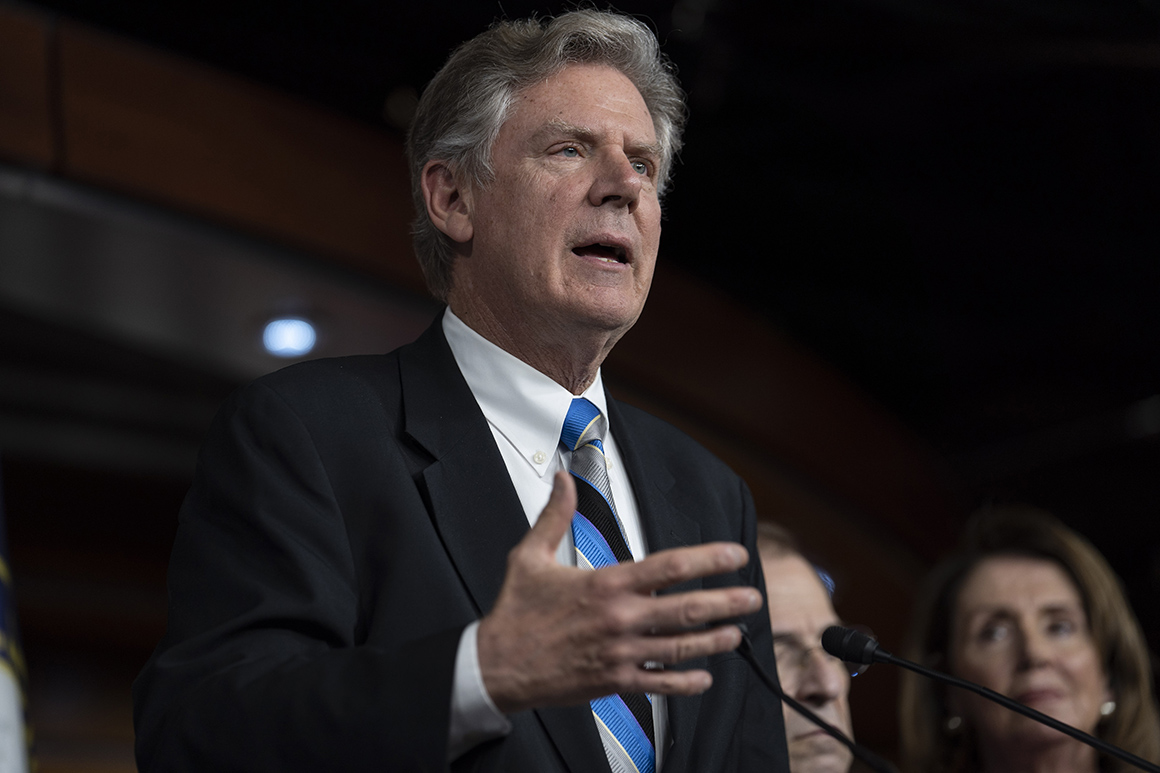
“It is disappointing that FDA appears willing to shelve this critically important solution instead of working towards specific regulatory actions that could result in significant public health benefits,” Pallone wrote to Commissioner Stephen Hahn. Pallone and co-sponsor Rep. Donna Shalala (D-Fla.) did not include nicotine caps in their bill because they want FDA to set the appropriate limit, an aide said.
The bill’s fate is far from clear. Some House Democrats are concernd about the prospect of menthol or hookah tobacco bans. Civil rights organizations including the ACLU this week circulated a letter on the hill urging lawmakers to drop the idea, saying it would disproportionately weigh on black communities and encourage harmful over-policing. Meanwhile, a Senate companion bill led by Ohio Democrat has no Republicans on board and is unlikely to get a Senate vote even if the House passes its version.
The renewed attention to nicotine limits is partly fueled by a new low-nicotine cigarette called Moonlight that’s billed as less addictive and could soon hit the U.S. market. A panel of FDA advisors this month weighed whether the product with 5 percent the nicotine of ordinary cigarettes is enough to earn it a „modified risk“ designation, meaning it could benefit the health of the population as a whole.
Matthew Myers, president of the Campaign for Tobacco-Free Kids, said the administration is missing an opportunity to crack down on youth tobacco use by not mandating nicotine limits but instead potentially allowing a cigarette that kids could think is healthier.
„Scott Gottlieb left, and he was the one who was clearly running the political interference for it,“ said Myers. „The political decisionmakers took over.“
An FDA spokesperson said the agency is still reviewing comments on a possible nicotine cap and that the broader tobacco framework is among its top priorities. But administration critics say that doesn’t square with the worldview Grogan articulated — and the White House’s fiscal 2021 budget request that proposed entirely eliminating the FDA’s oversight of tobacco products and creating a new agency to do the job.
Gottlieb intended tobacco regulation to be one of his legacies, even in an administration known known for a broad anti-regulatory agenda. Central to that was the 2017 framework that proposed to limit nicotine levels and explore bans on flavors including menthol while assuring the industry it would leave the door open for newer, safer products. That thinking led the agency to delay regulating e-cigarettes for four years, a timeline that a court ordered to be pulled up to May this year.
While Gottlieb expressed the belief others would carry on the agenda after he resigned in April 2019, menthol regulation has been mired in controversy, skepticism among black lawmakers and little GOP support. Nicotine caps have been fiercely fought by the industry, though there is some bipartisan support in Congress: Senate HELP Chairman Lamar Alexander (R-Tenn.) peppered FDA Center for Tobacco Products chief Mitch Zeller with questions about capping nicotine levels during a hearing last fall.
Tobacco companies “will certainly fight tooth and nail to stop this product standard from going into place,” said Mike Zercher, president of 22nd Century, the maker of Moonlight said in interview. “It’s clear the role of nicotine, for them, is a key part of their business model.”
Manufacturers and skeptics have long argued that low-nicotine cigarettes would just lead users to smoke more, boosting their risks for cancer and heart disease from the scores of other chemicals that remain in the products.
Numerous studies say that should not be the case, but only if high-nicotine products are not readily available, said Tobacco Free Kids’ Myers.
That’s why anti-tobacco advocates return to the idea of an industry-wide nicotine cap. Manufacturers have argued it could take decades to comply, by coming up with the technology and growing the plants that turn their cigarettes into nonaddictive products.
Compounding the problems is that 22nd Century holds an array of patents that make it impossible for other companies to take the same road without partnering.
“Our patents essentially cover the entire biosynthetic pathway that creates nicotine in the plant,” said CEO Zercher. “It was years of research to get to that point.”
Both British American Tobacco and Altria, makers of some of the country’s most popular cigarettes, have struggled “because they start bumping up against our patents,” said Zercher.
Reynolds American, BAT’s U.S. subsidiary, referenced these struggle in comments submitted to FDA, writing that patents on needed technology „are held almost exclusively“ by 22nd Century and that there are a range of U.S. and foreign restrictions on genetically engineering tobacco to find other ways to make low-nicotine plants.
Both Reynolds and Altria also questioned how easy it would be to replicate the low-nicotine plants for mass-market sales.
„To date, 22nd Century has been unwilling to share its cigarettes for research purposes,“ Altria wrote in its own comments. „As a result, it is impossible to confirm the results of this research, let alone identify all of the problems that attempting to produce these cigarettes on a commercial basis might raise.“
FDA is expected to decide on the moderate risk designation for Moonlight in the next few months. In the meantime, 22nd Century could still launch the product without making claims about health benefits. The question is whether it will have any success in a market full of high-nicotine options.
Democrats in Congress think the situation calls for tough new standards, and see the Pallone bill as their opening. They also plan to vigorously argue for a robust tobacco regulation regime within the FDA.
The administration proposal to create a new tobacco agency „is kind of breathtaking, it makes no sense,“ said Rep. John Sarbanes (D-Md.) at a Wednesday House hearing on the budget request, „It’s a crazy thing to do by the administration which unfortunately hasn’t taken significant action against big tobacco as more of our youth become addicted.”
Source: politico.com
See more here: news365.stream






